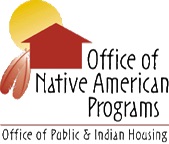EnVision Center Demonstration Program
What is the EnVision Center Demonstration Program
Under the leadership of President Donald J. Trump, the Administration is committed to reforming government services and expanding opportunities for more Americans to become self-sufficient. The EnVision Center demonstration will offer HUD-assisted families access to support services that can help them achieve self-sufficiency, thereby making scarce federal resources more readily available to a greater number of households currently waiting to receive HUD assistance.
The EnVision Centers demonstration is premised on the notion that financial support alone is insufficient to solve the problem of poverty. Intentional and collective efforts across a diverse set of organizations are needed to implement a holistic approach to foster long-lasting self-sufficiency. EnVision Centers will provide communities with a centralized hub for support in the following four pillars: (1) Economic Empowerment, (2) Educational Advancement, (3) Health and Wellness, and (4) Character and Leadership. The Economic Empowerment pillar is designed to improve the economic sustainability of individuals residing in HUD-assisted housing by empowering them with opportunities to improve their economic outlook. The Education pillar seeks to bring educational opportunities directly to HUD-assisted housing and includes partnering with public and private organizations that approach education in non-traditional ways on non-traditional platforms. The Health and Wellness pillar is designed to improve access to health outcomes by individuals and families living in HUD-assisted housing. The Character and Leadership pillar is designed to enable all individuals and families residing in HUD-assisted housing, especially young people, to reach their full potential as productive, caring, responsible citizens by encouraging participation in volunteer and mentoring opportunities.
Through results-driven partnerships with federal agencies, state and local governments, non-profits, faith-based organizations, corporations, public housing authorities (PHAs), tribal designated housing entities (TDHEs) and housing finance agencies, EnVision Centers will leverage public and private resources to help individuals and families living in HUD-assisted housing climb the ladder of opportunity.
A Government Accountability Office (GAO) report found collocating government services could be a more effective way of helping low-income Americans. EnVision Centers aim to break down the silos in government that perpetuate inefficiencies.
Tribal Success Stories
Choctaw Nation
The Choctaw Nation opened the doors on May 17, 2019, to the first EnVision Center run by and for Native Americans. In 2018, the Housing Authority of the Choctaw Nation of Oklahoma was chosen by the U.S. Department of Housing and Urban Development (HUD) as one of 17 EnVision Center communities in the country. In a presentation, HUD Secretary Ben Carson stated, “The Choctaw Nation EnVision Center is an investment in America’s most important resource – our people.” Secretary Carson went on to say, “The Center will offer helpful resources to tribal residents and promote self-sufficiency among Choctaw Nation, HUD-assisted households. Everyone can achieve their American dream – we just need to create conditions in which people can actualize their potential, and that’s what today’s opening is all about.” For more information about the Choctaw Envision Center, please click here.
EnVision Centers in Oklahoma- Connecting to Empower
February 12, 2020

On January 28, 2020, Michelle Tinnin, Native American Program Specialist in the Southern Plains Office of Native American Programs (SPONAP); and Sharon Gordon-Ribeiro, Field Office Director for the Oklahoma City Office of Field Policy Management (FPM); hosted the first-ever EnVision Center Demonstration collaboration for Oklahoma. Federal and State partners attending the event included; the U.S. Small Business Administration, Community Action Agency of Oklahoma City and Oklahoma/Canadian Counties, Homeless Alliance (Oklahoma City), Oklahoma Housing Finance Agency, Oklahoma City Housing Authority, Internal Revenue Service Volunteer Income Tax Assistance Program, Oklahoma Department of Mental Health and Substance Abuse, and the Central Oklahoma Workforce Innovation Board. The goal of the collaboration is to build a network of partners and support systems that will facilitate economic opportunities and empower Americans to lead self-sufficient lives by connecting them with a variety of resources and tools.
Jill S. Yu, from the Office of Field Policy and Management in Washington, D.C., provided an overview of the EnVision Center demonstration program which is premised on the notion that financial support alone is insufficient to solve the problem of poverty. Intentional and collective efforts across a diverse set of organizations are needed to implement a holistic approach to foster long-lasting self-sufficiency. EnVision Centers provide communities with a centralized hub for support in the following four pillars: (1) Economic Empowerment, (2) Educational Advancement, (3) Health and Wellness, and (4) Character and Leadership.
As one of seventeen entities selected for the original EnVision Center pilot, the Housing Authority of the Choctaw Nation, was the first tribe to participate and successfully develop an EnVision Center in Indian Country. Staff from the Housing Authority of the Choctaw Nation shared lessons learned, potential pitfalls and their overall experience as a forerunner in the EnVision Center demonstration.
For more information on EnVision Centers visit HUD’s website: https://www.huduser.gov/portal/envisioncenters/home.html
Please Share Your EnVision Center Success Story by Email at ONAP Web manager
Additional Resources
- Secretary Carson Kicks Off EnVision Center Demonstration
- Advanced Notice of EnVision Center Demonstration
- Download the EnVision Centers App for iPhone devices
- Federal Register Notice FAQs
- Sample Commitment Letter



